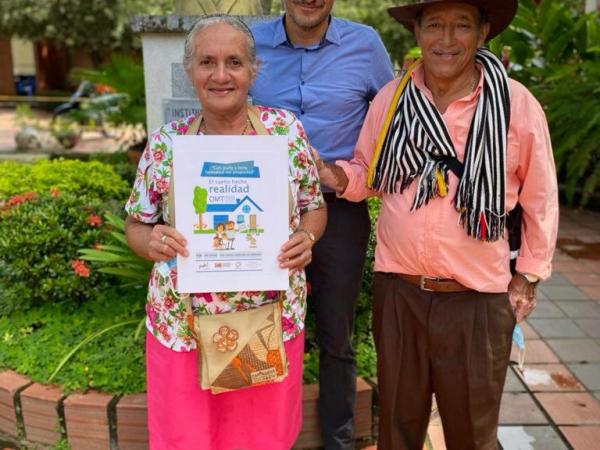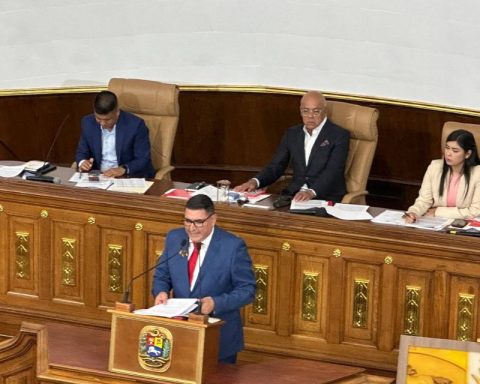According to the fifth mathematical study of political space, concluded last August 19, which extracted data from the last 21 days (500 hours) of interactions on the Internet, with exclusivity filters for Approval and Rejection, from massive data obtained from Google trends, was projects that the Approve option wins with 55.1% the exit plebiscite This Sunday, September 4. This, according to the Master of Science and Doctor of Philosophy from University College London, with postgraduate studies in Big Data and Business Intelligence, Francisco Vergara Perucich. Political Space has been making reports with the same methodology used in the entry plebiscite, where the model showed that the Approve option would win with 77.80% of the preferences, and the final result was 78.28%. For the second round between Boric and Kast, the model predicted a victory for the former by 57% against 43% for the latter, with the final result being 55.64% for Boric; This latest study was published in Research Gate.
Regarding the difference between the Political Space study and the traditional surveys that have been disseminated in Chile, Vergara explains that when these are probabilistic, they can be more reliable, but they are not exempt from methodological errors.
The most frequently cited surveys today “consist, for the most part, of a probabilistic panel, for example, of 250 thousand users or something like that and from that they draw their sample to do the study. That is not an error in itself… if you are testing a product, for example, a coca-cola, or a new brand, because you have a second universe of potential customers represented. The problem is when you have a general vote that is mandatory and where eventually you have two groups of respondents who are unlikely to to answer surveys, who are young people and socioeconomic group E, who are the ones who register the least in the surveys”.
So, Vergara continues, there “could be a distortion that explains why there is so much distance between our forecasts, which are those of mathematical modeling, and the numbers of the survey, because there is a record that we can reach, because we cannot we ask no one, we simply extract data that exists on social networks”.
Report August 20, 2022 Plebiscite Exit 
Different results
Despite having confidence in his predictive model, Vergara acknowledges the complexity of the exit plebiscite, “Now, historically, in the case of us, who have been doing this for a while, we have never seen that the polls and our data were so different Now we are going to see if the computers or the poll are the ones that are going to be the best instrument to predict elections. This distance that has occurred between the two methods is interesting to observe, since there is something that is not being seen. For my part, I am very expectant and anxious to know what happened, because deep down, either our model is wrong, which has not been the case before, or the polls are bad, which has not been the case before either.”
Despite his doubts, the Big Data and Business Intelligence expert points out that artificial intelligence is today the most accurate instrument for predicting electoral scenarios. “Today it is quite well demonstrated in the literature that, more than a survey, it is much more useful to make measurements on social networks in countries where there is a high penetration of social networks, such as Chile. We, according to Google, have a very high mention, 70% of its platform. For example, a model of machine learning – which we do not do because it is very time-consuming – is tremendously precise, much more than a survey”.
Regarding the possibility that the mathematical model developed by Political Space fails, Vergara would have no complexes in recognizing the error: “We are scientists, we are constantly exposed to failure, we are not prisoners of the truth, but what happens is that we have been very accurate before. Now that they are nothing like any poll, neither on the left nor on the right, it already has us worried.
See the complete report and the Political Space methodology delivered on August 20
Artificial intelligence and Daoura’s natural language processing
Daoura is a Brazilian company specialized in artificial intelligence and natural language processing, that is, through machine learning (machine learning) to understand human language and from there extract information from the social networks they obtain insights that are relevant. They use a methodology based on a theory called “Social Sensing”, which refers to the monitoring of the sensation of social feeling. And they generate an indicator called “social thermometer”, based on that information. This theory explains that there is an important actor that influences the community, in some way, then, with this theory placed in the digital social context, they apply and project future scenarios.
According to his report prepared on August 14, they projected that the Approve option wins with 56%, with 95% confidence and 2 percentage points of error. Monitoring is 24/7, but they publish weekly reports. Basically, a projection is extracted from there, according to the average of all the days, and in this case it was 100 days or 15 weeks, from May 1 to August 14.
“Daoura started in 2017 and it was a platform to understand what people were talking about a city, that information was initially delivered to the municipalities or for the management of citizen demands or to detect problems of insecurity, health or education. That was at the beginning of the project, but after two years we also began to have companies that were very interested in monitoring what people were talking about products, services or brands and understanding the social trend and business opportunities”, details Daniel Merege , one of the co-founders of the company and who directs the operation in Chile and Latin America, a computer engineer with entrepreneurship and business studies at Stanford University.
“As a method, the platform performs social listening and we configure keywords that are related to the plebiscite, for example, I approve, I reject, I approve exit, etc. We collect all of that in the database, which stores that information, and our artificial intelligence starts processing text by text, extracting the insights and the “contextual information”, as we call it, that is, the feeling, the engagement (scope), the location of the text, and the emotion that the person expressed in the text, there are many cognitive skills extracted for us to generate the insightsso that our data scientists understand what is being talked about, that is our main objective”, explains Merege.
For the 2020 entry plebiscite, Daoura projected that the Approve option would win with approximately 75% of the vote, compared to 25% for the Reject option. After the final count of votes, the confirmation arrived: 78.27% of Chileans voted for approval, compared to 21.73% who chose to reject, the result of only 3 percentage points of difference between reality and the projection of artificial intelligence.
Regarding the results of traditional surveys, the computer engineer points out that they are very different things, “we cannot directly compare ourselves to the surveys because we do not ask questions. There is already the first big difference between what we do and what the surveys do. In our case, we monitor people who express themselves naturally and by themselves and not provoked by questions. As social networks have a very important presence throughout the world and also in Chile, we understand, from the theory of social sensingthat what people express, can and in fact is influencing other people who may not be in the digital world, but are influenced by the information that is generated there”.
As for the difference in results that they have with traditional surveys, Merege suggests that it is necessary to review very well how they were asked, the questions, how many people called and talked, how all the data collection went. “There is not a lot of information from the polls about who exactly answered effectively, and therefore the result that we are seeing now may be a result with a specific bias, as it may not. On the other hand, when we see social networks –and our platform has the advantage of not being in the Approval or Rejection bubble–, we are seeing everything, so, based on that broad vision of what people are talking about, we can read in a different way what social networks are delivering. You also have to see the result they are reporting, there is a very high proportion of undecided in the polls and we know, according to what they published, if these people are being influenced by people who vote Approve or Reject, and there is a margin too big to say that Approval will win.”
See the report where Daoura gives details of his methodology and results of his latest study
See the methodology and other studies of Daoura
What the pollsters say
When asked about the organizations that use mathematical or artificial intelligence models to predict the results of the exit plebiscite, the sociologist Axel Callís, director of Tú Influyes, is skeptical. “I don’t know them, I don’t know their methodology, I don’t know what will become of them after the plebiscite. We risk our prestige in each election, we are part of the Chilean Association of Market and Public Opinion Researchers (AIM), where we publish our results and studies. And we’re going to keep doing polls after the election when no one cares. It remains to be seen if these people are going to continue doing studies after Sunday, September 4. I don’t know if they risk their prestige either,” he maintains somewhat uncomfortably.
For her part, Marta Lagos, director of Mori, although she has her doubts, is not closed to the possibility that mathematical prediction or artificial intelligence are right. “I think that all the people who are doing experiments seem super interesting to me and I look at them all seriously. I repeat, one thing is that an experiment that you say ‘look, these people have been doing the same thing for two elections’, well, that they write the method to see if another person can replicate it. In other words, the method does not exist until it is published and applied by third parties in different circumstances”.
Regarding the complexity of predicting the result of the constitutional exit referendum, Marta Lagos assures that the problem is not only here in Chile. “The point is that this is not a plebiscite that, because it is Chilean, because it is us, because there are specific Chilean circumstances… plebiscites are ferocious animals. In Brexit the polls were wrong, in Colombia too, because they are ferocious animals, they are much more difficult to measure because what you are voting for is not a person. So it is more difficult to identify your vote, because your vote depends on values, impressions, attitudes, that is why an incident like the one in Valparaíso can have an influence, do you notice? Why? Because it turns out that you are voting for a set of values, and that value can collapse for a fact. Well, it has happened in many elections in the world that the elections are reversed by fact, ”she points out.


















